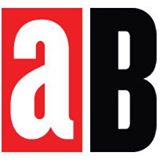If there’s one type of business funding that’s heads and tails above the rest, the SBA 7(a) loan is it.
A Small Business Administration loan is issued by approved financial institutions, partially guaranteed by the government, and can be used for a variety of reasons. Since it is paid back over a long period of time — generally between 5 and 25 years — it can give business owners working capital they need to expand their business, purchase expensive equipment, allow them to fund a new business acquisition, or even cover the refinancing of other debts.
Of course, with some of the lowest interest rates and longest loan terms available, SBA loans are some of the toughest to qualify for. The strict underwriting criteria may prevent many successful business owners from securing SBA funding due to things like low credit scores, too little business experience, or low annual revenue.
Before applying for an SBA 7(a) loan, take your own eligibility into consideration. Is now the best time to apply, or should you perhaps wait to get some aspect of your business finances under control? The following list includes the top criteria that qualifying SBA 7(a) loan applicants always has on their side.
Correct Documentation
A lot of information available will tell you that the SBA loan application is a long and arduous process — and it’s not entirely incorrect. Of course, no application without all the proper documentation is going to find success. To complete your application, you will need the following:
- Driver’s License or Other Identification
- Bank Statements
- Voided Business Check
- Balance Sheet
- Tax Returns, Both Business & Personal
- Profit & Loss Statements
- Business Debt Schedule (if applicable)
- Business Plan
The SBA has plenty of information available online to help business owners in the process of applying for a small business loan. For example, you can read about how to write a business plan for an effective application.
Fall Within Size Requirements
What constitutes a “small business” varies from industry to industry. Typically, a small business can’t exceed 500 workers (though there have been exceptions). However, the SBA determines business size in certain industries by looking at average annual receipts rather than number of employees. Read here to see if your company qualifies as a small business in your industry.
Strong Credit History
While your personal and business credit history is not the only criterion in your SBA loan application, it’s no secret that it’s one of the most important components. Generally, you will need a score of at least 640 in order to be approved.
In fact, most business owners who qualify for an SBA loan have even higher credit scores — most have at least 680. The SBA and their partnering financial institutions are taking a risk by lending to you at all; if your credit score is on the higher side, they can trust that you will consistently make your loan payments each month over the course of potentially the next few decades.
Also keep in mind any other marks, such as a tax lien or declaration of bankruptcy, that will show up on your credit report. The SBA will want to see that you are three years out from the discharge date of bankruptcy (which typically stays on your credit history for 7-10 years).
